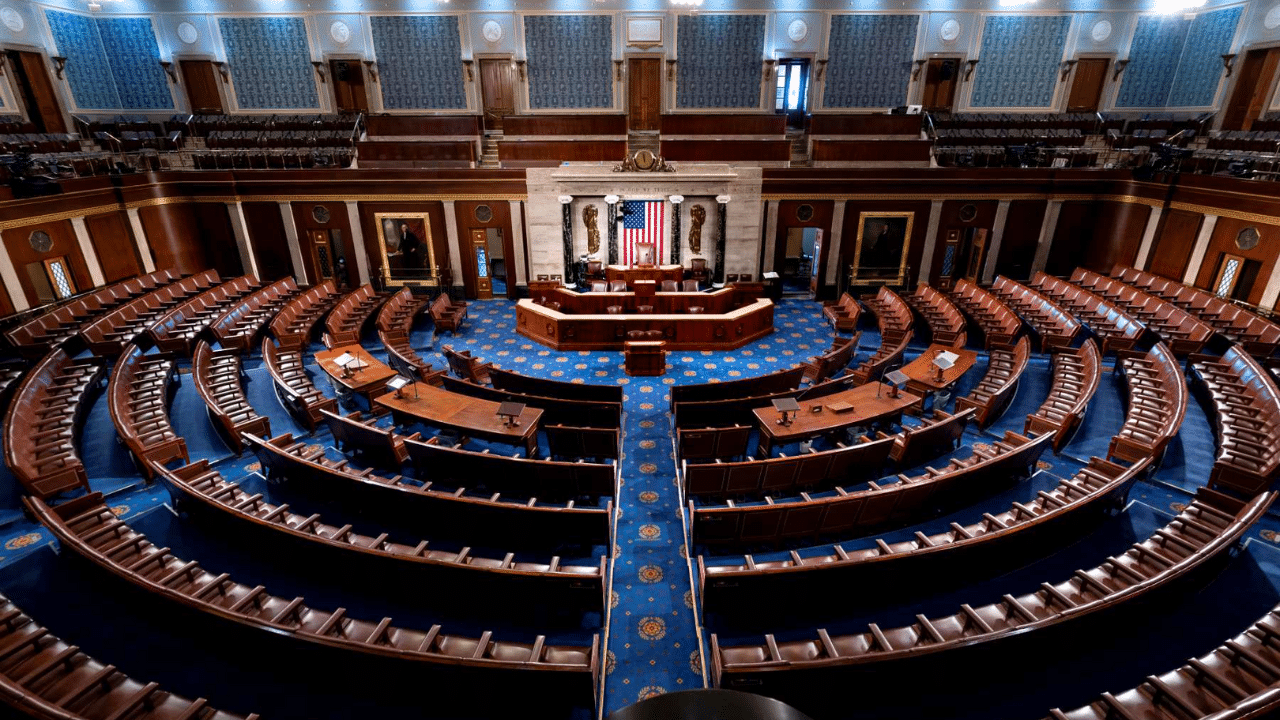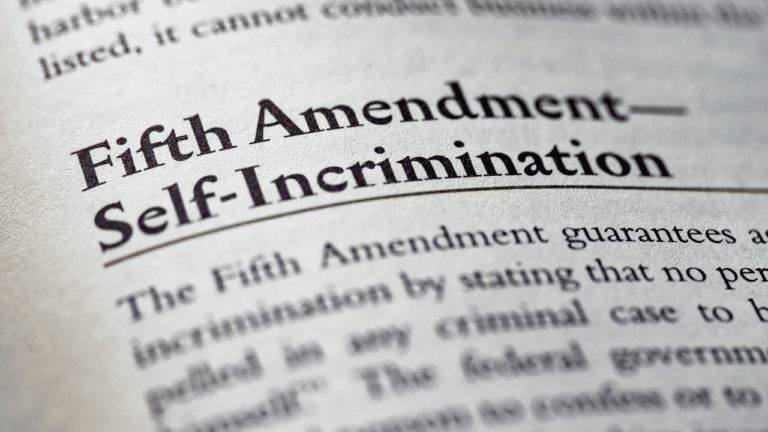The Seventeenth Amendment to the Constitution of the United States provides for the direct elections of senators to the United States Senate for each individual state in the country. The Constitutional Amendment supersedes the previous mechanism in Article I, Section 3 whereby state legislatures elected Senators. Dissatisfaction with the previous system coincided with the rise in voting, ultimately leading to ratification of the Seventeenth Constitutional Amendment on April 8, 1913. As a result, voters now directly elect United State Senators by popular vote.
What is the Seventeenth Amendment in simple terms?
The Seventeenth Amendment allows for the election of Senators by direct popular vote in every state of the country. Prior to its adoption, United States Senators were elected by the legislatures of the individual states.
WHAT IS THE TEXT OF THE SEVENTEENTH AMENDMENT TO THE UNITED STATES CONSTITUTION?
U.S. Const. Amend. XVII. POPULAR ELECTION OF SENATORS.
The Senate of the United States shall be composed of two Senators from each State, elected by the people thereof, for six years; and each Senator shall have one vote. The electors in each State shall have the qualifications requisite for electors of the most numerous branch of State legislatures.
When vacancies happen in the representation of any State in the Senate, the executive authority of such State shall issue writs of election to fill such vacancies: Provided, That the legislature of any State may empower the executive thereof to make temporary appointments until the people fill the vacancies by election as the legislature may direct.
This amendment shall not be so construed as to affect the election or term of any Senator chosen before it becomes valid as part of the Constitution.
WHAT IS THE HISTORICAL BACKGROUND OF THE SEVENTEENTH AMENDMENT TO THE UNITED STATES CONSTITUTION?
Under Article 1, Section 3 of the United States Constitution, Senators were originally elected to six year terms by the legislatures of the individual states. This system emerged as part of the Connecticut Compromise during the Constitutional Convention of 1787 where debate divided among delegates who favored equal legislative representation among the states, and others, including James Madison and Alexander Hamilton, who advocated for representation proportional to population. The Connecticut Compromise (also known as the Sherman Compromise) retained a bicameral legislature where every state was granted equal representation in one house of congress (United States Senate) and proportional representation in the other (United States House of Representatives). The Constitution was subsequently ratified with state legislatures having the power to select Senators. This original system served as a partial enshrinement of “State’s Rights” for Anti-Federalists who viewed it as a check on a federal government that admittedly held greater power than it had under the Articles of Confederation.
The Reconstruction Era Amendments, particularly the Fourteenth and Fifteenth Amendments (adopted on July 9, 1868 and February 3, 1870, respectively), led to increased voting as many more people were able to exercise the right of Suffrage. This culminated in increasing dissatisfaction with the selection method for Senators with spreading belief that Senators ought to be popularly elected, in the same manner as Representatives to the United States House of Representatives. Additionally, advocates of popular elections for Senators pointed to logistical frustrations of the original system, such as legislative deadlocks resulting in extensive vacancies, and corruption: indeed, there was a mounting belief that corrupt political organizations and special interest groups were purchasing senatorial elections. There was also concern that state legislatures had become so consumed with selecting Senators that legislators ignored other pertinent legislative issues. Baybee, Jay S., Ulysses at the Mast: Democracy, Federalism, and the Siren’s Song of the Seventeenth Amendment, 91 Nw. U. L. Rev. 500 (1997)
Despite numerous prior proposals and movements to change the original system, it wasn’t until 1912 that the United States House of Representatives by joint resolution proposed a constitutional amendment for the direct election of Senators. The Seventeenth Amendment text was thus proposed to the legislatures of the several States by the Sixty-Second Congress (United States Senate and United States House of Representatives) in 1912. On May 31, 1913, in a proclamation of the Secretary of State William Jennings Bryan, it was declared to have been ratified by the legislatures of thirty-six of the fourty-eight States: Massachusetts on May 22, 1912; Arizona on June 3, 1912; Minnesota on June 10, 1912; New York on January 15, 1913; Kansas on January 17, 1913; Oregon on January 23, 1913; North Carolina on January 25, 1913; California on January 28, 1913; Michigan on January 28, 1913; Iowa on January 30, 1913; Montana on January 30, 1913; Idaho on January 31, 1913; West Virginia on February 4, 1913; Colorado on February 5, 1913; Nevada on February 6, 1913; Texas on February 7, 1913; Washington on February 7, 1913; Wyoming on February 8, 1913; Arkansas on February 11, 1913; Maine on February 11, 1913; Illinois on Frbruary 13, 1913; North Dakota on February 14, 1913; Wisconsin on February 18, 1913; Indiana on February 19, 1913; New Hampshire on February 19, 1913; Vermont on February 19, 1913; South Dakota on February 19, 1913; Oklahoma on February 24, 1913; Ohio on February 25, 1913; Missouri on March 7, 1913; New Mexico on March 13, 1913; Nebraska on March 14, 1913; New Jersey on March 17, 1913; Tennessee on April 1, 1913; Pennsylvania on April 2, 1913; Connecticut on April 8, 1913.
Ratification of the Seventeenth Amendment was complete with the ratification by the state legislature of Connecticut but the amendment was subsequently ratified by Louisiana on June 11, 1914, by Alabama on April 11, 2002, by Delaware on July 1, 2010, by Maryland on April 1, 2012, and by Rhode Island on June 20, 2014.
The Seventeenth Amendment was rejected without any subsequent ratification by the Utah state legislature. Florida, Georgia, Kentucky, Mississippi, South Carolina, and Virginia never considered the constitutional amendment. Neither Alaska nor Hawaii were states at the time of the 17th Amendment’s proposal.
WHAT ARE THE BASIC EFFECTS OF THE SEVENTEENTH AMENDMENT TO THE UNITED STATES CONSTITUTION?
The Seventeenth Amendment changed how Senators are elected in the United States of America. The Constitution originally required state legislatures to select United States Senators but the 17th Amendment conferred this power directly to voters, resulting in several practical, everyday consequences:
Increased Accountability
Senators are directly accountable to the voters in their states. This accountability can result in Senators more responsive to the needs and concerns of their constituents.
Greater Transparency
With Senators being elected directly by the people, there’s a greater level of transparency in the electoral process. Voters have a clearer understanding of who they are electing and can hold them accountable for their actions.
Broader Representation
Direct election allows for a broader range of candidates to run for senate seats, potentially leading to greater diversity and representation in the Senate.
Reduced Influence by Political Machines
Before the Seventeenth Amendment, Senators were chosen by state legislatures, which could be influenced by political machines and special interests. Direct election reduces the influence of these groups in the selection process.
Enhanced Democracy
The direct election of Senators aligns with democratic principles by giving citizens a more direct voice in their government and ensuring that senators represent the will of the people.
Streamlined Election Process
Direct election simplifies the election process for Senators, as it eliminates the need for state legislatures to appoint Senators, potentially reducing the deadlock or delays in filling vacant Senate Seats.
The Seventeenth Amendment significantly impacted the democratic process in the United States, empowering citizens to directly participate in selecting Senators and fostering a more transparent and accountable government.
SEVENTEENTH AMENDMENT TO THE UNITED STATES CONSTITUTION
The Seventeenth Amendment to the Constitution of the United States established the direct election of Senators by popular vote in the individual states. Prior to ratification on April 8, 1913, Senators were chosen by state legislatures; frustrations with the politics and practical difficulties inherent in this arrangement led to proposal of the amendment and its adoption. The 17th Amendment allows for citizens to directly elect their Senators, enhancing democracy and reducing the influence of political systems and corruption in the selection process.
SEVENTEENTH AMENDMENT COURT CASES
The United States Supreme Court has not extensively interpreted and applied the Seventeenth Amendment since its adoption in 1913. However there have been cases related to aspects of senatorial elections and representation:
- In US Term Limits, Inc. v. Thornton, the Supreme Court of the United States addressed whether states could impose additional qualifications for congressional candidates beyond those listed in the U.S. Constitution. The Court held that states could not impose such additional qualifications, invalidating state-imposed term limits for members of Congress, including senators, and emphasizing that qualifications for federal office are set by the Constitution and cannot be altered or repealed by individual states.
- In Arizona State Legislature v. Arizona Independent Redistricting Commission the Supreme Court of the United States upheld the constitutionality of Arizona’s independent redistricting commission, affirming that States have the authority to establish such commissions to draw congressional districts, including those for the Senate. This ruling affirmed the states’ role in the administration of federal elections, including those for Senators, as long as they comply with the Constitution’s requirements for congressional elections.



















